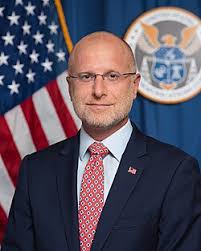Brendan Carr: Navigating the Future of Telecommunications

Introduction
Brendan Carr, a prominent figure in the telecommunications sector, currently serves as a commissioner of the Federal Communications Commission (FCC) in the United States. His work has proved to be increasingly important in today’s digital landscape as the demand for reliable and efficient communication services has surged, especially amidst the ongoing global pandemic and the rise of remote work.
Significant Developments
Recently, Carr has been vocal about enhancing the nation’s broadband capabilities and addressing the digital divide affecting rural and underserved communities. A major focus of his efforts has been on expanding access to high-speed internet. In a recent statement from October 2023, Carr emphasized the necessity of building ‘affordable and fast broadband that everyone can access,’ arguing that it is essential for educational and economic success.
Moreover, Carr has actively participated in policy discussions surrounding 5G technology’s rollout across the United States. As telecommunications leaders prioritize expanding infrastructure for faster connectivity, Carr has pushed for clear legislation that facilitates efficient deployment while ensuring that public safety and health concerns are addressed.
Addressing Cybersecurity
Another crucial aspect of Carr’s agenda includes improving cybersecurity measures within the telecommunications realm. He has called for stricter regulations on telecommunication companies to safeguard user data and protect the nation’s infrastructure from foreign cyber threats. In a recent address, he stated, ‘As we advance our telecommunications frameworks, we must ensure they are secure against evolving threats.’
Conclusion
Brendan Carr’s influence in the telecommunications space cannot be overstated, with his commitment to expanding broadband access and enhancing security protocols shaping the future of connectivity in the US. As the digital environment continues to evolve, Carr’s initiatives are likely to have long-lasting impacts on how Americans communicate and engage with technology. Stakeholders in the telecommunications industry and everyday users alike should keep a close watch on his developments, as they may herald significant changes in the way services are delivered and regulated in the near future.









